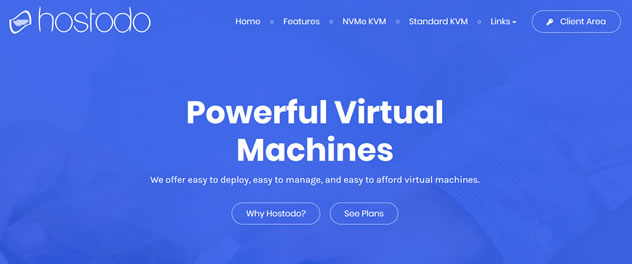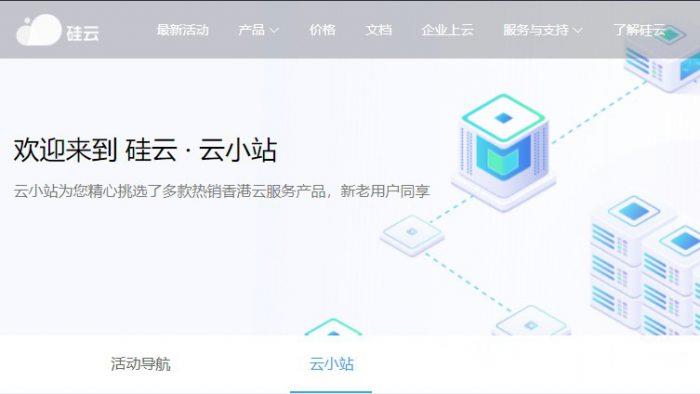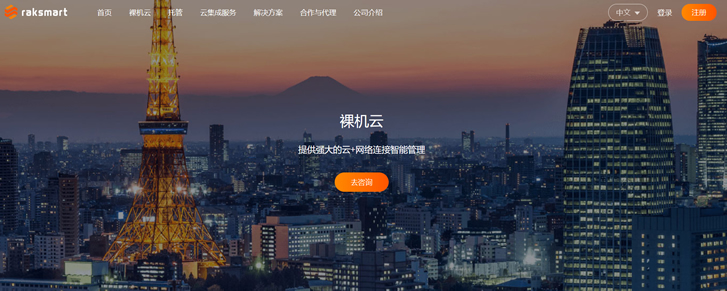中国谷歌总裁解释谷歌对华决策
谷歌总裁解释谷歌对华决策
文章原标题新闻周刊与Goog le总裁兼CEO埃里克.施密特的对话
作者 Faree d Zakar ia文小米译
业务而不是待在这个国家的外面 因为这样对所有人都有利的——我们和中国人民。 现在 我们做出这个决定不再接受审查制度了。
在你们做出决定的前一个月发生了什么事情导致了做出这样的决定
我们发现大量的证据证明互联网上对中国的持不同政见者存在着监控。我们并没有明确的证据证明谁做出了这种监控但是你可以得出你自己的结论。
这种监控是广泛存在的吗
可能比我们发现还要多得多。
为什么你选择公开发表声明而不是和中国政府一起寻找解决办法
我们正在和中国政府协商我们也希望能找出解决办法。但是我们想保持透明。我们不想秘密行事。所以我们决定先向公众发表声明现在我们正与中国政府讨论。
这种讨论会有结论吗
现在说这个还为时过早讨论才刚刚开始。
难道没有人说你们负有让股东利益最大化的责任吗
当我们首次公开发行的时候我们在招股文档中说明了我们想如何运作谷歌。我们那时已经说明了我们的做法将不循常规我们不会总是或只是靠商业利益驱动。这就是这一观点的延伸。这不是一个商业决定——商业决定很明显应该是继续留在中国市场。这是基于价值观的决定我们试图去问从全球的立场什么是最好的决定。
你认为中国能一边全球化一边保留他们的审查制度吗
中国对全球化的拥抱对中国和世界来说都是巨大的好处。它使得数以亿计的人民摆脱了贫困。但是 中国也是少数对于信息进行限制的国家之一。 中国是谷歌唯一一个为了遵守当地的审查法律而愿意提供本地站点的国家。我们在其他地方没有这么做过。其他国家有时会屏蔽Y outub e几周。但是当我们和交流之后指出他们只是对成千上万的视频中的一个不满。我们就能解决问题可以说 中国对信息制定了独特的限令。
这会让他们在经济上受损
我相信在长期来看会的。如果人们能生活在一个可以与别人一起自由想像、发明和沟通的环境中你会更好得多。越多的人加入进来就越好。越多的人与人之间的联系就越好。谷歌所做的一切都是赋予个体以力量而且我们也想让个体更有力量。
什么是可能的结果呢那个[中文搜索引擎]百度会完全占领市场吗
这是可能的结果之一。另一个结果是我们与中国政府达成协议继续运营。或许其他的搜索引擎公司会进入中国市场。请理解我们在中国还会有工程师、程序员以及其他的人。我们爱中国和中国人民这不是他们的问题。这是关于我们不再愿意配合审查制度。英文原文
A Conve rsati on With Googl e’ s Chairman and CEO
By Faree d Zakar ia | NEWSW EEK
Publi shed Jan 15, 2010
From the magaz ine issue dated Jan 25, 2010
Googl eCEO Eric Schmi dt has long defen ded his company' s decis ion to do busin ess inChina despi tethe restr ictions that Beiji ng impos eson Internet freedom. Nevertheless, last week the company abrup tly threa tened to pull out after suffe ring hacker attac ksbelieved to have origi nated in China. Schmi dt expla inedwhy to NEWSW EEK' sFaree d Zakar ia in an exclu sive interview. Excerpts:
Why did you make this decis ion? It surpr ised many peopl e and many companies.Googl e is a different kind of company than many other s. The issue of operating inChina was alwayscompl ex for us. We were asked to accepta syste mof censorship thatwe were very uncom fortable with. But we had come to the concl usion that operatingin China was betterfor everyone—us, the Chine se peopl e—than stayi ng out of thecount ry. We have decided that we canno t parti cipat e in censo rship anymore.What happe ned over the last month s to come to this decis ion?
We came acros sa lot of evide nce of the monit oring of Chinese dissi dents throughthe Web. We do not have clear evidence as to who was doing the monit oring, but youcan draw your own concl usion s.
Is there a lot of such monitoring?
There is probably a lot more than what we found.
Why did you annou nce this publi cly rathe rthan go to the Chine se government and tryto work thing s out?
We are going to the Chine se government , and we hope we can work thing s out. But wewant to be transparent. We don' t want to keep secre ts. So we decided to first makea publi cannou ncement and now we are havingdiscu ssion swith the Chine se government.
Are they going anywh ere?
It' s much too early to tell ; they reallyhave just begun.
Won' t some peopl e say that you have a fiduc iary responsibi lity to your shareholders to maxim ize profi t?
When we filed for our IPO, we attac hed to the docum ent a statement about how we wantedto run our business. We said we were going to be different. We said that we weregoing to be motivated by concerns that were not alwaysor strictly business ones.This is an exten sion of that view. This was not a business decis ion—the businessdecis ion would obviously have been to conti nue to parti cipat e in the Chine se market. It was a decis ionbased on value s. We tried to askwhat would be best froma global standpoint.
Do you believe that China can still globalize while maintaining its censorshipsystem?
China's embrace of globa lizat ion has been a great boon for China and the world. Ithas lifte dhundreds of milli ons of peopl eout of poverty. But China is placi ngrestrictions on informationthat few countries place. China is the only country in theworld where Googlewas willing to offer a local site that followed the regime'scenso rship laws. We haven't done this anywhere else. Other count ries somet imesblock, say, YouTube for a few weeks . But then we talk to them, point out that theywere offen ded by one video out of literally hundr eds of milli ons. And we work thingsout. So, China places unique limit s on information.
And this will hurt them economical ly?
I believe it will in the long run. You're much betteroff with a systemin whichpeopl ecan be free to imagi ne, inven t, and conne ctwith one another. The more peoplewho can specu late, the bette r. The more human-to-human conne ction s, the better. Every thing we do at Googl e empowers the indiv idual . And we want to empower theindiv idual .
What' s the likel y outcome here? That [Chine se search engine] Baidu will total lydomin ate the marke t?
That' s one possi ble outcome. The other is that we can work out an agreement withthe Chine se government and conti nue to opera te. Or that some other company movesin. And pleas eunder stand, we will still have engin eers, programmer s, and othersinChina.We love China and the Chine se peopl e. This is not about them. It' s aboutour unwil lingness to parti cipat e in censorship.
- 中国谷歌总裁解释谷歌对华决策相关文档
- 苹果公司谷歌总裁
- outspokenInventory- 42 Google vice president of Army Regulation(库存- 42谷歌副总裁军队监管)
- 波士顿谷歌总裁波士顿大学演讲稿
- 环境谷歌AR/VR副总裁:WebVR/WebAR是战略关键
- 搜索引擎谷歌总裁演讲稿
- 的人谷歌总裁波士顿大学演讲稿.doc
Hostodo商家提供两年大流量美国VPS主机 可选拉斯维加斯和迈阿密
Hostodo商家算是一个比较小众且运营比较久的服务商,而且还是率先硬盘更换成NVMe阵列的,目前有提供拉斯维加斯和迈阿密两个机房。看到商家这两年的促销套餐方案变化还是比较大的,每个月一般有这么两次的促销方案推送,可见商家也在想着提高一些客户量。毕竟即便再老的服务商,你不走出来让大家知道,迟早会落寞。目前,Hostodo有提供两款大流量的VPS主机促销,机房可选拉斯维加斯和迈阿密两个数据中心,且都...

硅云香港CN2+BGP云主机仅188元/年起(香港云服务器专区)
硅云怎么样?硅云是一家专业的云服务商,硅云的主营产品包括域名和服务器,其中香港云服务器、香港云虚拟主机是非常受欢迎的产品。硅云香港可用区接入了中国电信CN2 GIA、中国联通直连、中国移动直连、HGC、NTT、COGENT、PCCW在内的数十家优质的全球顶级运营商,是为数不多的多线香港云服务商之一。目前,硅云香港云服务器,CN2+BGP线路,1核1G香港云主机仅188元/年起,域名无需备案,支持个...

日本美国站群服务器raksmart站群新增,限量低至月1.99美元
RAKsmart 商家八月份的促销活动今天更新。基本上和上个月的产品套餐活动差不多的,不过也是有简单的微调。对于RAKsmart商家还是比较了解的,他们家产品虽然这两年增加多个机房,以及在VPS主机方案上有丰富的机房和调整到一些自营机房,他们家的策划能力还是有限,基本上每个月的套餐活动都差不多。RAKsmart 在八月份看到有新增香港高防服务器可选,最高100GB防御。同时原来上个月缺货的日本独立...

-
企业cms最好是开源的企业cmswordpressWordPress 是什么?360和搜狗360搜索和搜狗搜索谁好谁流量大?为什么我在网上搜索到的数据有一定矛盾?做广告推广哪个好呢?360与搜狗腾讯搜搜为什么比不上360比不上搜狗比不上百度 ?conn.asp数据库连接出错,请打开conn.asp文件检查连接字串。dell服务器bios设置戴尔服务器主板怎么设置U盘启动my.qq.commy.qq.com,QQ用户上不去?字节跳动回应TikTok易主每天每夜要结束了主持人问关于抄袭的问题,权志龙很认真的回答不想说的,想在以后做好的那段话的音乐叫什360防火墙在哪里设置电脑或电脑360有联网防火墙吗,在哪里设置filezilla_server如何用FileZilla Server新增FTP帐号